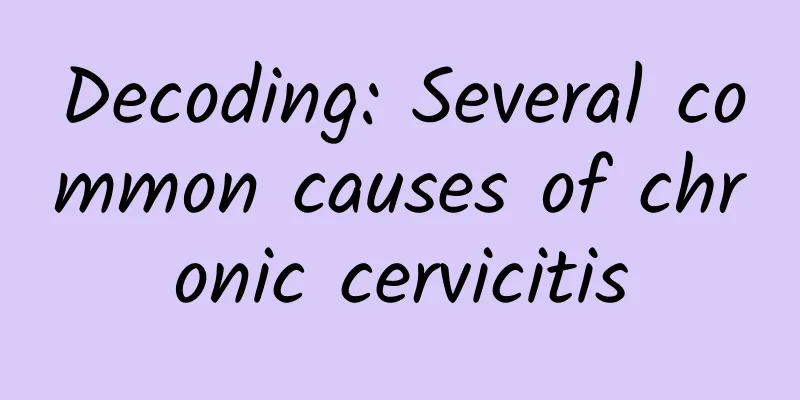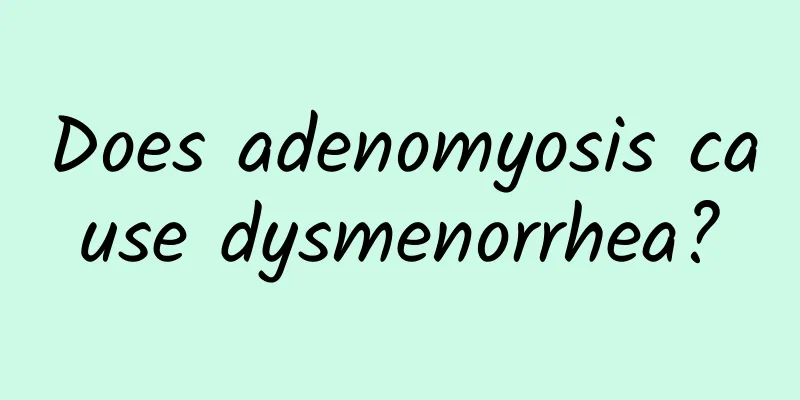What causes adnexitis and what medicine should I take?

|
Adnexitis is usually caused by infection and can be treated with anti-inflammatory drugs, such as antibiotics (such as amoxicillin, levofloxacin, cephalosporins) to relieve symptoms. The specific medication should be determined based on the doctor's diagnosis. The causes of adnexitis include many aspects, the most common of which is infection. Pathogens usually ascend through the reproductive tract to cause inflammation. Common pathogens include Escherichia coli, Streptococcus, Staphylococcus and Gonorrhea. Improper sexual life, poor hygiene conditions or improper postpartum and post-abortion care can easily cause reproductive tract infections. Unhygienic menstruation, frequent artificial abortions, and intrauterine surgery may also lead to adnexitis. Bad living habits such as low immunity, high mental stress, and long periods of sitting can also increase the risk of accessory organ infection. If not treated in time, adnexitis may develop into chronic inflammation, leading to pelvic adhesions, fallopian tube obstruction, and even affecting fertility. The causes of adnexitis include many aspects, the most common of which is infection. Pathogens usually ascend through the reproductive tract to cause inflammation. Common pathogens include Escherichia coli, Streptococcus, Staphylococcus and Gonorrhea. Improper sexual life, poor hygiene conditions or improper postpartum and post-abortion care can easily cause reproductive tract infections. Unhygienic menstruation, frequent artificial abortions, and intrauterine surgery may also lead to adnexitis. Bad living habits such as low immunity, high mental stress, and long periods of sitting can also increase the risk of accessory organ infection. If not treated in time, adnexitis may develop into chronic inflammation, leading to pelvic adhesions, fallopian tube obstruction, and even affecting fertility. Early treatment of adnexitis is crucial, and drug treatment should be carried out under the advice of a doctor. Amoxicillin is suitable for mild bacterial infections; levofloxacin is often used to prevent and treat a wider range of genital tract pathogen infections; cephalosporins are more effective for sensitive bacterial infections. Antibiotics can be used in combination with anti-inflammatory drugs to relieve local symptoms for severe infections. Patients should avoid self-medication and take medication according to the course of treatment to prevent drug resistance. Daily diet recommends consuming more fruits rich in vitamin C such as oranges and kiwis, which can help improve immunity; eat more foods rich in high-quality protein such as eggs and lean meat to promote the repair of inflammatory tissues; avoid spicy and irritating foods to avoid aggravating local irritation. Pay attention to keeping the vulva clean on a daily basis, avoid sitting for long periods of time and too frequent sexual intercourse to prevent recurrence. If acute symptoms such as fever and abdominal pain occur, it is recommended to seek medical diagnosis immediately. |
<<: Is it normal to bleed after taking medication for cervicitis?
>>: The dangers of acute adnexitis
Recommend
What is cervical hypertrophy? Do I need treatment?
Cervical hypertrophy is a common pathological man...
Women who want to treat dysmenorrhea should pay attention to the details of life
Dysmenorrhea is constantly tormenting women, whic...
How long to rest after three months of miscarriage
Generally speaking, it is recommended to rest for...
In winter, appetite is out of control. Eating too much oily food can relieve greasiness and bring back sweetness without burden.
The temperature is low in winter, and in order to...
What should I do if my menstruation is abnormal or my leucorrhea is abnormal?
What should I do if my menstruation is abnormal o...
Can hidden abortion be clean? What should I do if hidden abortion has occurred?
Hidden miscarriage (disappearance of the fetus) r...
Using a tight abdominal band after pregnancy can cause adnexitis
After giving birth, many women are worried about ...
[PK Online Rumor] Can catechins burn fat? Zhao Hanying said so...
It is widely rumored on the Internet that "d...
How to effectively treat chocolate ovarian cysts?
Ovarian cysts are a common disease among women to...
What are the symptoms of uterine fibroids? What are the dangers of uterine fibroids?
Uterine fibroids are a type of benign uterine tum...
Nursing measures for adolescent patients with functional uterine bleeding
Dysfunctional uterine bleeding during adolescence...
Feeling weak all over and having difficulty losing weight? I am afraid that low thyroid is the problem!
I didn’t eat much, but my weight kept rising? Be ...
Can I have sex if I have cervical erosion? Treatment of cervical erosion
Cervical erosion is a common disease in women of ...
Hospitals that provide surgical treatment for endometrial tuberculosis
How to choose a hospital for surgical treatment o...
How to treat cervicitis
Cervicitis is one of the common gynecological dis...









